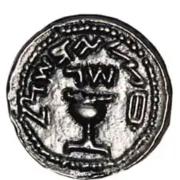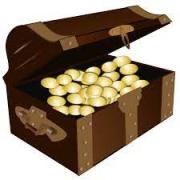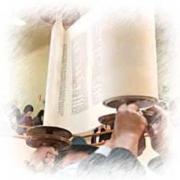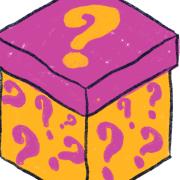The “Borrowed” Treasures
Isn't it strange that Hashem is telling Moshe Rabbeinu to ask the nation to go and ask for gifts of silver and gold from the Egyptians?
Parashat Bo, 11:2 it says: "דַּבֶּר־נָ֖א בְּאׇזְנֵ֣י הָעָ֑ם וְיִשְׁאֲל֞וּ אִ֣ישׁ מֵאֵ֣ת רֵעֵ֗הוּ וְאִשָּׁה֙ מֵאֵ֣ת רְעוּתָ֔הּ כְּלֵי־כֶ֖סֶף וּכְלֵ֥י זָהָֽב׃ - Tell the people to borrow, each man from his friend, and each woman from hers, objects of silver and gold."
The Sages say that Hashem made a promise to Avraham Avinu, and He wants to keep His word. So, when the Jews ask the Egyptians, they will gladly give.
But I think there's much more hidden behind these words. So, please allow me to uncover what may be the reason for this odd request.
In Parashat Lech Lecha, when Lot was taken captive, Avraham Avinu assembled a small army and went to free his nephew. After the battle of four against the five kings, Avraham Avinu was on the side of the winners. The victorious king made an offer to Avraham, in Lech Lecha 14:21: "וַיֹּ֥אמֶר מֶֽלֶךְ־סְדֹ֖ם אֶל־אַבְרָ֑ם תֶּן־לִ֣י הַנֶּ֔פֶשׁ וְהָרְכֻ֖שׁ קַֽח־לָֽךְ׃ - Then the king of Sodom said to Abram, "Give me the people, and take the possessions for yourself."
To which Avraham Avinu answered in Lech Lecha 14:23: "אִם־מִחוּט֙ וְעַ֣ד שְׂרֽוֹךְ־נַ֔עַל וְאִם־אֶקַּ֖ח מִכׇּל־אֲשֶׁר־לָ֑ךְ וְלֹ֣א תֹאמַ֔ר אֲנִ֖י הֶעֱשַׁ֥רְתִּי אֶת־אַבְרָֽם׃ - I will not take so much as a thread or a sandal strap of what is yours; you shall not say, It is I who made Avram rich." It seems like Avraham Avinu wants to attribute his success and wealth to only one source—Hashem, but here, I believe—if I may say so—an error was made.
In Parashat Vayera, when the angels visited Avraham Avinu after he had made the Brit, one of the angels said that he had come to execute a judgment against the cities of Sodom and Gomorrah. When they finished speaking with Avraham, they left and continued on with their task.
In 18:23-33 it says: "וַיִּגַּ֥שׁ אַבְרָהָ֖ם וַיֹּאמַ֑ר הַאַ֣ף תִּסְפֶּ֔ה צַדִּ֖יק עִם־רָשָֽׁע׃ - Avraham came forward and said, Will You sweep away the innocent along with the guilty? אוּלַ֥י יֵ֛שׁ חֲמִשִּׁ֥ים צַדִּיקִ֖ם בְּת֣וֹךְ הָעִ֑יר הַאַ֤ף תִּסְפֶּה֙ וְלֹא־תִשָּׂ֣א לַמָּק֔וֹם לְמַ֛עַן חֲמִשִּׁ֥ים הַצַּדִּיקִ֖ם אֲשֶׁ֥ר בְּקִרְבָּֽהּ׃ - What if there should be fifty innocent people within the city; will You then wipe out the place and not forgive it for the sake of the innocent fifty who are in it?" And so Avraham went down in numbers each time lowering it, all the way to 10. Hashem said that He would not destroy if He found ten righteous individuals in that city, and for their sake, he would not destroy other people. On this note, they parted.
This story is located near the story of Sodom and Gomorrah, so many, attribute this conversation to that event, but if I may suggest, let's view this incident from a different angle.
Let's imagine, for a second, that it's not about Sodom and Gomorrah, but rather about the generation that came out of Egypt. Avraham Avinu is a prophet, and he has realized that he made a mistake. When the King of Sodom offered him gold and silver, Avraham declined. But now he has realized that this was a huge mistake.
In Parashat Lech Lecha 15:13-14, it says: "וַיֹּ֣אמֶר לְאַבְרָ֗ם יָדֹ֨עַ תֵּדַ֜ע כִּי־גֵ֣ר ׀ יִהְיֶ֣ה זַרְעֲךָ֗ בְּאֶ֙רֶץ֙ לֹ֣א לָהֶ֔ם וַעֲבָד֖וּם וְעִנּ֣וּ אֹתָ֑ם אַרְבַּ֥ע מֵא֖וֹת שָׁנָֽה׃ - And [God] said to Avram, "Know well that your offspring shall be strangers in a land not theirs, and they shall be enslaved and oppressed for four hundred years; וְגַ֧ם אֶת־הַגּ֛וֹי אֲשֶׁ֥ר יַעֲבֹ֖דוּ דָּ֣ן אָנֹ֑כִי וְאַחֲרֵי־כֵ֥ן יֵצְא֖וּ בִּרְכֻ֥שׁ גָּדֽוֹל׃ - but I will execute judgment on the nation they shall serve, and in the end they shall go free with great wealth."
And because Avraham Avinu had declined and did not take the wealth - gold and silver offered by the King of Sodom, which he had earned by fighting in a war, where warriors go through pain, blood, and death, and by the rules of war, the treasures taken from the enemy are called booty or spoils of war and are shared amongst the winners. Declining to take the spoils of war from the King of Sodom led Avraham Avinu's descendants to go down to the unknown land into slavery, and to also experience pain, blood, and death, and then be freed by Hashem, and only then bring out that great promised wealth - or "spoils" from the Land of Egypt.
Remember the discussion Avraham Avinu had with Hashem, where Hashem agreed to save the city if He found 10 worthy individuals? So, since Avraham Avinu's descendants had to go into exile, and later in Parashat Shelach, when the spies came back from Eretz Yisrael, Hashem didn't find the required 10 people out of the 12 spies to save the "city", since 10 spoke against the Land. Hashem did as He had promised - the fate of the men aged 20-60 in that generation or that "city" was decreed to be buried in the desert.
So, at this point, you may ask why such a harsh punishment for not taking gold and silver when the King of Sodom offered them to Avraham Avinu?
Because Avraham Avinu was raised by a father who was a craftsman, who made idols from clay, wood, gold, and silver. Every day, he saw the influence the idols had on people who came to his father's store. He should have foreseen the consequences of not taking the gold and should have prevented it by taking the treasures when they were offered to him. Only he was able to raise them to the levels of holiness to serve Hashem, but since he declined them, those treasures were made into idols, which misled the population, and eventually led to the destruction of the cities of Sodom and Gomorrah.
That is why Moshe Rabbeinu asked people to get silver and gold from the Egyptians, and to bring the treasures out of Mitzrayim. In the desert, he has raised those treasures to the highest levels of holiness by making them into Holy items, such as the Mizbeakh, Mishkan, Menorah, and other Holy vessels, to serve G-d Almighty. And those objects were built from gold, silver, and other materials that the nation of Israel has earned, and paid for with pain, blood, and death.
Just like the Gemara in Masechet Berachot 5A says, Three things are acquired through hardship: The Next World, Torah, and Eretz Yisrael. And I will add that the above artifacts of such enormous proportions of holiness under Torah, which can't be acquired merely by money. They require national effort of sacrifice and suffering, and only then will Hashem's presence be found among the nation, when the Nation is molded as if one vessel through hardships, and at the end, together works toward one goal - to serve Hashem in holiness.
Part 2: The above is the story of how Moshe Rabbeinu elevated the treasures they brought out of Egypt to the level of holiness. However, there were other events throughout our history where gold was "used".
- In Parashat Ki Tisa, people approached Aharon HaCohen and asked him to create for the nation an intermediary between Hashem and the people, because Moshe Rabbenu had delayed his return from the mountain. Aharon HaCohen asked them to bring him the golden earrings from their wives, thus trying to delay the time. When the wives rejected this idea, men wanted to expedite the process; so men gave their earrings - exactly those that they had gotten from the Egyptians, the ones they paid for with pain, suffering, and death - thus contributing to the sin of the Golden Calf and cheapening the national efforts of years of slavery and national sacrifice.
- Later, King Solomon tries to atone for it, or elevate the gold in the service of Hashem, where Moshe Rabbenu left off, due to the sin of the Golden Calf. We are told in the Book of Melachim 1 that King Solomon covered most of the First Bet Hamikdash with gold, along with most of its vessels. There's an opinion that about 1,086 talents, or about 34 tons of gold, were brought to Jerusalem from Ophir by King Solomon's workers. This amount of gold is estimated to have been about half of the world’s known gold supply at that time. The First Temple was the most beautiful building in the world in its time, as the House of G-d should be. But there was another problem. King Solomon had around 1000 wives, and for each of them, he built a palace that also required gold to make them feel "royally accepted" in society. So, each of the wives' palaces was also looking golden and sparkly. But later in life, due to his age, he lost control over his wives, and they began to worship their idols in each of their palaces, so the vast amount of gold of King Solomon was not elevated in holiness, and gold did not achieve its intended purpose, thus it was not atoned.
So, where do we go from here?
We got another shot at it, and it is a Third Bet Hamikdash. According to one opinion, when the time comes, we will build the Third Temple under Mashiach's supervision. And this time, we will also use gold, and lots of it too. The Third Bet Hamikdash - The House of G-d will attract people from all over the world, according to Sefer Yeshayahu. It will be a magnificent structure and, most importantly, holy, built according to the Jewish Law. But why use so much gold on it, you may ask? Since the beauty of that scale and aggrandizement of this structure should elevate the Honor and Name of G-d ONLY. Because, if anyone deserves the praise and fanfare of that magnitude, that would be not us - the mere mortals, but only Him alone - Hashem, G-d Almighty!!
So, at the end of the day, Mashiach would have previous experience working with gold and would find a way to atone and elevate the gold in the service of G-d.
Part 3: But what do we do with the other gold? That same gold that Avraham Avinu didn't take as spoils from the King of Sodom. Since Avraham Avinu hasn't taken the spoils of war and others weren't able to atone for the gold, who will take it? Since its balance is there in Hashem's books marked as pending.
This time Hashem will give this to Mashiach, as it says in the Book of Yeshayahu 53:12, "Therefore I shall give him a portion with many, and he shall split a booty with mighty ones. For he exposed himself to death and let himself be counted among the transgressors, whereas he bore the sins of many and prayed for the transgressors."
Here, I should probably bid farewell and call it a day, since I believe the point is made.
But - this time, Today, let me ask you a question.
- "And he shall split booty with the mighty ones" - Why would Hashem give the spoils to Mashiach? What does it mean? How did he earn it?
- "For he exposed himself to death?" What is it talking about? It almost feels like somehow he mimicked Avraham Avinu, but how??
- "...And let himself be counted among the transgressors" - This one is really puzzling...Why would he do that? Plenty of questions here...
- And how about this one - "...He bore the sins of many and prayed for the transgressors" - Why would he pray for the sinners?
SOS!! Is anyone out there?
The above and many more missing pieces of the puzzle will be revealed to the selected few on That Day, hopefully sooner, with the help of the Mighty G-d.
Shmuel Katanov
January 14, 2024














